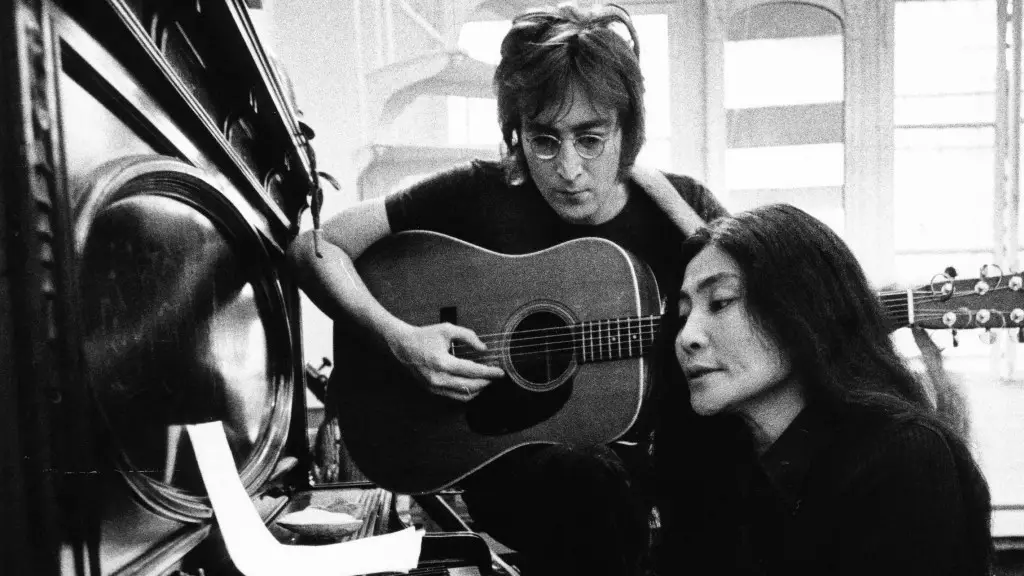The world of music and activism sees many stars, but few shine with the intensity of John Lennon and Yoko Ono. Their story, now explored in the new documentary **One to One: John & Yoko**, directed by Oscar winner Kevin Macdonald, adds an intriguing layer to the legacy of this iconic couple. This film, which has garnered attention after its abundant screenings at renowned film festivals, is set for an exclusive IMAX release on April 11, followed by a later streaming on HBO and Max. Such releases underscore not just the historical importance of their narrative but also a broader cultural relevance, particularly in today’s societal climate.
One of the documentary’s focal points is the eighteen months that Lennon and Ono spent living in Greenwich Village in the early 1970s. This period was characterized by exploration, transformation, and personal evolution as they navigated new terrain in America. For a couple who previously associated more with the Beatles’ global fame, their relocation marked a shift toward a more intimate experience of their art and activism. While living in a modest apartment, they were not simply passive observers of American culture; they were rather assimilating it, watching copious amounts of television and engaging with the media narratives of the day.
These interactions culminated in their response to societal issues, notably their approach to protest. The documentary showcases how a particular exposé by journalist Geraldo Rivera ignited the idea for the One to One benefit concert. This concert, a milestone for Lennon as his only full-length show post-Beatles, was significant not only as an artistic expression but as an instance of music intertwined with advocacy, instigating conversations about social justice.
One of the extraordinary aspects of **One to One: John & Yoko** is its incorporation of never-before-seen materials that breathe new life into the iconic figures we thought we knew. Through the deft touch of Macdonald and editor Sam Rice-Edwards, audiences are afforded a closer look at Lennon’s only full-length concert following his Beatle days, showcasing how he and his work evolved during this pivotal time.
The remastering of the concert’s audio, overseen by Sean Ono Lennon, further bridges the generational gap, allowing both old and new fans to immerse themselves in soundscapes intricately linked to a historical context. It prompts reflection not just on past events but also on how far personal and artistic expressions have come. The film meticulously contextualizes this concert within the broader narrative of Lennon’s life, making it an essential watch for anyone invested in the realm of music history and the power of personal stories to resonate with larger societal movements.
The sentiments expressed by those behind the film emphasize the documentary as not only a tribute to the creative couple but also a mirror to contemporary issues. As Macdonald himself articulated, the essence of his film is about “music and love and politics,” elements that are vibrantly relevant in today’s increasingly polarized world. The echoes of the past, particularly 1972, resonate with the struggles and discussions of our current era, making this documentary a relevant exploration into the interconnectedness of politics, art, and social change.
As the film gears up for its premiere, the excitement surrounding it is palpable. Magnolia Pictures’ co-CEOs, Eamonn Bowles and Dori Begley, have lauded the film as a “revelation,” emphasizing the intimate, human aspects that reveal the depth of Lennon and Ono’s relationship. This insight into their journey adds layers to the public’s understanding of not just who they were as public figures but as individuals navigating love, artistry, and activism.
The documentary exemplifies a fruitful partnership between multiple creative voices, with notable producers including Brad Pitt and Dede Gardner from Plan B, along with influential individuals from Mercury Studios. Such collaboration has been crucial in bringing together the raw materials and narratives that allow viewers to gain a fresh, nuanced perspective on the lives of John Lennon and Yoko Ono.
As audiences prepare for the April release, they can expect an artwork that challenges previous perceptions and conjures a new appreciation for the couple’s influence on music and society. It is a testament to how storytelling—especially in documentary format—can illuminate historical figures, providing a platform to reflect on the evolution of cultural and political engagement in a rapidly changing world. In **One to One: John & Yoko**, viewers will discover not only Lennon and Ono’s profound love but the indelible mark they left on the tapestry of modern history.

Leave a Reply